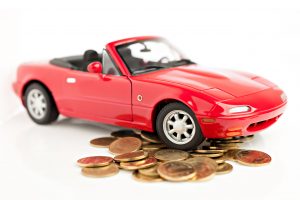 Most people jump in their car, turn up the music, and get going quickly. If you are listening to music, you may miss important sounds your car is making. Screeching. Pinging. Popping. These noises can be frightening, but they can also be important warning signals. Some noises may indicate a more serious problem, and lead to larger repairs if they are not dealt with quickly. Being vigilant to car noises can help you diagnose a potential problem before it becomes a serious emergency situation. Also, knowing someone has your back can give you peace of mind, so make sure you have the best cheap car insurance you can afford. Here are a few examples of weird car noises and what they might mean for you.
Most people jump in their car, turn up the music, and get going quickly. If you are listening to music, you may miss important sounds your car is making. Screeching. Pinging. Popping. These noises can be frightening, but they can also be important warning signals. Some noises may indicate a more serious problem, and lead to larger repairs if they are not dealt with quickly. Being vigilant to car noises can help you diagnose a potential problem before it becomes a serious emergency situation. Also, knowing someone has your back can give you peace of mind, so make sure you have the best cheap car insurance you can afford. Here are a few examples of weird car noises and what they might mean for you.
Squeaks
 If your brakes regularly give a high-pitched, single-note screech when you apply them, then you probably have worn-out brake pads or, on older vehicles, brake shoes. The noise is very high-pitched and hard to miss. As an indication that it’s time to replace them, most brake pads are designed to give off some noise near the end of their life span. A small metal warning tab is affixed to the brake pad that is designed to squeak when the brake pads are getting low. Other possibilities include overheated brake pads or brake rotor rust, which might sound less like squealing and more like grinding. Obviously, being able to stop your car is critically important, so take these noises seriously. Have your breaks inspected by a professional as soon as you can.
If your brakes regularly give a high-pitched, single-note screech when you apply them, then you probably have worn-out brake pads or, on older vehicles, brake shoes. The noise is very high-pitched and hard to miss. As an indication that it’s time to replace them, most brake pads are designed to give off some noise near the end of their life span. A small metal warning tab is affixed to the brake pad that is designed to squeak when the brake pads are getting low. Other possibilities include overheated brake pads or brake rotor rust, which might sound less like squealing and more like grinding. Obviously, being able to stop your car is critically important, so take these noises seriously. Have your breaks inspected by a professional as soon as you can.
Rattling or Squealing
If there is a rattling or flapping noise emanating from the front of your engine when you hit the gas, then your timing belt may need attention. The belt could be worn, loose, or out of alignment. Something like this can be very dangerous if you are speeding down the freeway and the belt breaks loose. If your engine makes a loud squeal, then it is probably time to have the fan belt checked or replaced. Fan belts tend to loosen over time, which causes that unmistakable squealing sound.
 Ticking
Ticking
Ticking noises heard when the vehicle is started cold could be perfectly normal, because it takes a few moments for the engine oil to be distributed inside the engine. If the ticking noise does not stop, your engine may be trying to tell you something. Ticking noises can have several causes, like insufficient oil pressure, a failing pump, or a problem with your car’s valve train. Whether it is an exhaust leak, valves that need to be adjusted, or an internal engine noise, ticking is a sign that something is not right. These problems can be more complicated, and should be listened to by a trained ear. Visit to an auto mechanic to get a proper diagnosis.
Thumping
 If you hear a thumping or clunking sound from the exhaust, or if it just starts sounding louder than normal, you may have a damaged exhaust system. Not only is this a noisy nuisance, defective mufflers can also be dangerous. There may be damage that is allowing carbon monoxide to leak into your vehicle, so have thumping sounds inspected by a professional right away.
If you hear a thumping or clunking sound from the exhaust, or if it just starts sounding louder than normal, you may have a damaged exhaust system. Not only is this a noisy nuisance, defective mufflers can also be dangerous. There may be damage that is allowing carbon monoxide to leak into your vehicle, so have thumping sounds inspected by a professional right away.
When your car starts sounding crazy, consider the noises symptoms of a larger problem. Since you drive your car every day, you know your car best. You will know when there is a new or different noise. If you don’t drive your car every day, make it a point to turn off all distractions when you start your car, so you can really hear what’s going on. Be pre-emptive with your car maintenance and make sure you can get help when you need it. Even if you are a per-mile insurance customer, you can still get cheap car insurance that includes roadside assistance.


